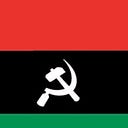An Anti-Revisionist Reading List
Maoists and other anti-revisionists believe that the modern day PRC has turned into a capitalist country, and has been such since the 1980s. Why? Here’s a list of material that can help you understand where we’re coming from. Even if you disagree, you should read them anyway to expand your sphere of theoretical knowledge and political economy and understand the key points that Maoists make regarding imperialism and the socialist system. This document will be regularly updated.
Chuang (Vol 1)
Chuang (Vol 2)
Over the past three decades, China has transformed from an isolated state-planned economy into an integrated hub of capitalist production. Waves of new investment are reshaping and deepening China’s contradictions, creating billionaires like Ma Yun while the millions below — those who farm, cook, clean, and assemble his electronic infrastructure — struggle to escape fates of endless grueling work. But as China’s wealthy feast ever more lavishly, the poor have begun to batter down the gates to the banquet hall. 闯 is the sudden movement when the gate is broken and the possibilities for a new world emerge beyond it. 闯 Chuǎng will publish a journal analyzing the ongoing development of capitalism in China, its historical roots, and the revolts of those crushed beneath it. Chuǎng is also a blog chronicling these developments in shorter and more immediate form, and will publish translations, reports, and comments on Chinese news of interest to those who want to break beyond the bounds of the slaughterhouse called capitalism.
Mao Zedong was far more astute. More than twenty years ago during the Cultural Revolution, he exposed Deng Xiaoping, Yang Shangkun, and most of their “hard line” colleagues as capitalist roaders. He accurately predicted that if such persons ever came to power they would transform the Communist Party into a revisionist party and finally into a fascist party and then the whole of China would change color. The surprising thing is not how accurate Mao’s prediction turned out to be, but rather how quickly it materialized in history.
Rethinking Socialism: What Is Socialist Transition?
For our analysis of the transition period between capitalism and communism, making the distinction between the legal transfer of ownership of the means of production to the state and the beginning of socialist transition is very important to clarify the question of revisionism. In many countries, China included, the Communist Party claimed and continues to claim that it practiced (s) socialism because the majority of their industries were (are) still state owned, when in fact the transition was already reversed from socialist to capitalist. At the current time, the Chinese Communist Party uses state ownership as an indicator of practicing socialism in order to legitimize its rule. As we explained earlier, state ownership exists in both capitalist system and during the period of transition, thus state ownership does not in any way indicate or express the relations of production.
Is Yugoslavia A Socialist Country?
Peaceful Coexistance: Two Diametrically Opposed Policies
On Khrushchev’s Phony Communism and Its Historical Lessons for the World
On Exercising All Round Dictatorship over the Bourgeoisie
